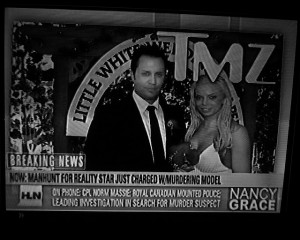
From OJ Simpson to Casey Anthony, America has no shortage of highly anticipated and hotly discussed trials. At the moment, Boston is a hive of judicial, legal, and media activity surrounding the trials of two infamous, if unrelated defendants: Boston Marathon bombing suspect Dzhokhar Tsarnaev and New England Patriots tight-end and homicide suspect Aaron Hernandez. An article from ABCNews by Denise Lavoe uses sociology to explain why some trials can gain so much attention and how that affects the ideal of trial by a jury of peers. In each of the Boston cases, jury pools reached well over 1,100 people until a group of potential jurors who hadn’t already reached a conclusion about the case could be found.
Quoted in the article, Northeastern University sociologist Jack Levin explains that each trial attracts interest and media attention in a specific way. People are interested in the Tsarnaev case because of “a widespread feeling that people have that they are vulnerable.” The fear of terrorism drives public interest rather than the fame of the defendant. The Hernandez case is different, as Levin explains, because the trial of a popular sports figure attracts its own kind of attention. Society, he says, places “tremendous value on athletes, and when one of them commits a serious crime like homicide, it shocks the public.” The trial of a disgraced, once-popular player draws public attention partially because the narrative seems to run so counter to prevailing perceptions of sport and athletes, as well as the gloss of fame. Tsarnaev is felt keenly as a physical threat to everyone, while Hernandez represents a more abstract threat to assumptions and values. Both cases will likely remain front-page news well into the future, but different social processes lay beneath their infamy.

Comments